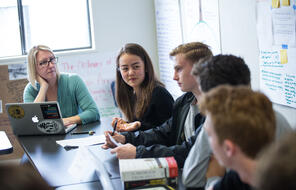Breadcrumb
This resource is part of:
Eric Liu on Citizen Power
At a Glance
Language
English — USSubject
- Civics & Citizenship
- Democracy & Civic Engagement
Eric Liu on Citizen Power
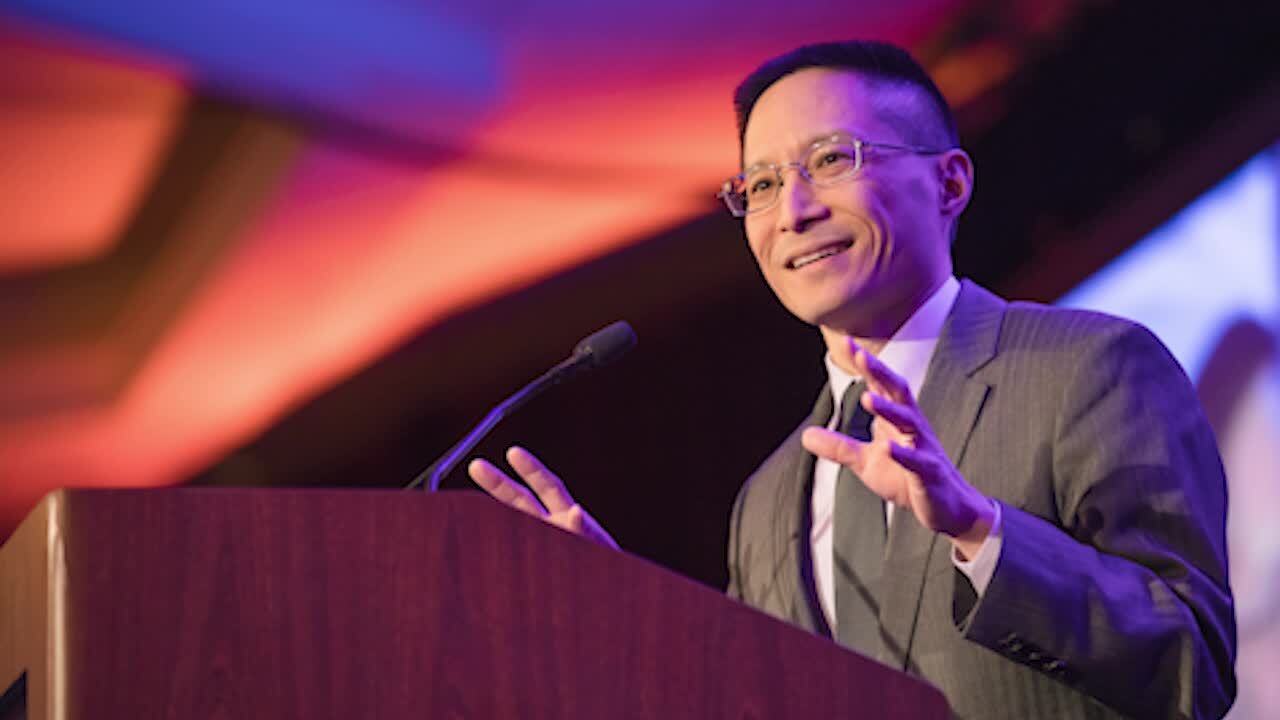
[MUSIC PLAYING]
Hi. This is Laura Tavares with Facing History and Ourselves. This week, in our What Makes Democracy Work series, we talk to civic entrepreneur Eric Liu, the founder of Citizen University and author of the book You're More Powerful Than You Think: A Citizen's Guide to Making Change Happen. He's in a great position to answer our question, what makes democracy work?
The most important thing in making democracy work is responsibility. As a system of decision-making, all democracy means is the people decide, as opposed to one person or a small, elite circle of people. But when all the people decide, that itself guarantees nothing in terms of the fairness or the wisdom of the outcome unless the people who are doing the deciding are responsible, have a sense of responsibility, and have a sense of literacy in both the issues of the day but also literacy in power and how things actually work in the world.
So I think if democracy unfolds without a sense of responsibility, then you get the outcome that you've seen, really, throughout history and throughout the world, which is that eventually, as John Adams once said, "all democracies commit suicide," which is to say they vote themselves out of existence. They vote in strong men with simplistic answers and scapegoating explanations for the problems that people face. And irresponsible voters in a democracy end up leading to the suicide of that system. So that's why I put responsibility right at the center.
[MUSIC PLAYING]
If you think about any pivot point in American history-- the Revolution, the abolition movement, the women's suffrage movement, the civil rights movement-- at every turn in those movements, what happened was that a critical mass of people got organized, got activated, got awakened. And they themselves had a high sense of responsibility to the country and to the ideals of the country.
But what they did was they set in motion a contagion, all right? It was never during any of these movements a great majority of the people who were driving the revolutions or driving the massive social changes. As I have said in other settings, majority rule is always shaped by minority will, which means that it's always a small minority of really activated, committed, dedicated people who choose to say, hey, we're responsible for making change happen here. And we're going to set it in motion.
And so I think if you look at the civil rights movement, and particularly the early stage of the civil rights movement, it's not a story only of courage for people like Rosa Parks and people who did the lunch counter sit-ins at great personal physical risk. But it's also the folks who surrounded them, fellow activists who were African American and allies who were white and Asian American and otherwise, people who trained and prepared organizers and activists to be ready for a situation like Rosa Parks sitting at the back of the bus. And I think those kinds of moments don't just occur out of nowhere.
Now, when you think about Rosa Parks and what she did, she wasn't only a woman who was tired that day and refused to move to the back of the bus. She was a citizen who had been training and preparing for just that moment. She had been participating in something called the Highlander Folk School, which really was a proving ground for young activists, activists of all ages to learn about civil disobedience, to learn about how to use effective forms of protest and direct action to apply pressure on decision makers and power brokers.
And so when that day arrived, Rosa Parks was ready. Rosa Parks drove the events of that day. She wasn't just the passive subject of forces around her. And I think that's one of the greatest lessons for us in thinking about democracy, that it only takes a few, number one. It only takes a few to be ready and to be clear about their objective and their demand for change, number two. And then number three, once they act, they set in motion a contagion.
Social norms changed over time. At the beginning of the civil rights movement, people thought that that was just a bunch of rabble-rousers, and they were trying to move too fast. And why do they have to upset the order of things? And by the end, and certainly looking back on history today, people accept as a general rule that the civil rights movement was just and fair and right and doing the right thing. But it took a contagion of norm shifts for that to happen.
And my firm belief is that any one of us has the power to set off that kind of contagion. You don't have to be rich. You don't have to be famous. You don't have to be really old or experienced. If you organize with a few other folks, you activate people to be part of a catalytic minority, you, too, can set off a cascade of good and a contagion of social change.
[MUSIC PLAYING]
So Eric says that any one of us can make change. But we need to understand and use civic power.
When I talk about civic power, I mean something very specific. I mean a capacity to ensure that others do as you would like them to do. And I know, to some people, that that sounds a little bit menacing or evil-sounding. But really, if we're honest about it, in every part of our lives, not just civic and political but with families, with neighbors, with friends, we're always trying to get other people to do what we'd like them to do.
And when those questions and capacities play out in a public arena on questions that everybody has to worry about and care about, that's civic power. And I think one of the most important things that we have to do right now, everyday Americans, is to become literate in power. And I mean that not just as a metaphor. I mean it almost literally, which is to say you have to know how to read power, and you have to know how to write power.
To read power means understanding in any situation why your neighborhood is the way it is, why certain people get certain resources, why certain schools get funding and others don't, why the bus line goes to this block but not that block, why nobody ever seems to clean up this park, but two streets over, they get everything they want. Understanding and reading the map of power means understanding who has money power, who has people power, who has the power of ideas, who has the power of influence to change social norms. And being able to read that map truly is a matter of literacy.
Understanding part of that is about decision makers in government. But part of it also is about influentials, whether they are faith leaders or elders or business people or other folks, people who have respect in the community, right? Being able to read that map is a really important part of power literacy.
But then so is the second half, which is, how do you write power? Once you can read the map of who has power and through what conduits in a community those different forms of power flow, then you've got to make a determination that I want to be part of that picture. I want to write myself into the map. I want to rewrite that map, which means that you, yourself, have to become willing and committed to get involved and participate, to show up in government, to show up in the life of your block or your block clubs or your neighborhood organizations, whatever it is.
And I think that simply by the act of organizing and participating, you learn how to write power. And that doesn't mean that overnight, you're going to be able to change society, right? Doesn't mean that if you get involved in certain campaigns to change something or grassroots efforts to build something in a neighborhood that you're going to succeed all the time. But it does mean that simply by practicing, you get better. And simply by participating, you learn how to write power as well as how to read it.
[MUSIC PLAYING]
So who can have civic power? And what does it mean to be a citizen and to use civic power well?
One of the most basic ways that I define citizenship is through this equation, which is power plus character equals citizenship. If all you have is the first half of that equation, if all you have is really high fluency and literacy in power, and you know how to work the system, and you know who decides stuff, and you know how to pressure those people, and you know how to get what you want, but if that capacity is completely untethered to any moral sense, to any sense of what I call character in the collective, then all you are is a really skilled sociopath, right?
You have to couple that literacy and power with this grounding in character, in a collective, by which I mean simply, do you believe in tolerance? Do you believe in mutual respect? Do you believe in shared responsibility?
Do you believe in contribution before consumption? Do you see yourself as a member of the body and not just a selfish individual, right? These are matters of ethics and character that have to be part of the equation of citizenship.
Now, I think both halves are equally important. If all you have are those values and that good civic character, but you really have no idea how to get anything done, and you have no idea how to read the map of power, much less how to rewrite it, then you're nice but a little bit useless, right? You are simply an observer or a philosopher or someone on the sidelines.
And so to be a fully participating member of our system of democracy is to have power plus character. And I want to make one final note here, which I probably should have said at the outset, is that when I talk about the idea of citizens, citizenship, I want to make plain that I'm not talking about documentation status under the immigration laws of the country. I'm talking about this deeper ethical sense of being a member of the body, a contributor to community, right?
And I think that that broader notion of citizenship, of course, here in the United States, plays out in a particular context within which we have inherited a creed. We've inherited a set of American promises and ideas that are in documents ranging from the Constitution to the Declaration to the Gettysburg Address and others. And so to be a citizen in the ethical sense in America means to be a contributor, not only to community but to holding up those ideals and actually trying to nudge our community and our country to living up to those ideals, which we haven't yet fully done.
But I believe that anybody can do that, whether or not they have the documents of the United States citizenship. And I think everyone should do that. And one of the most important messages of the work that we do at Citizen University and in my book is that, really, I mean, as the title of my book says, you're more powerful than you think.
This is not just a piece of subject matter for insiders and people who already have clout and people who are well known. This is a message that you, as a young person in a community that might be off the mainstream media's grid, you have the power to change attitudes, to change conditions, and to change politics where you live and in ways that radiate out from where you live long, as you commit to really cultivating both that literacy and power and that grounding in character.
Eric offers an inclusive definition of citizenship. He says that to be a citizen is to be a member of the body, a contributor to the community. And that's something available to everyone. What might it look like for you? To learn more about how citizens make democracy work, please visit us at facinghistory.org/democracy-and-us.
[MUSIC PLAYING]
Eric Liu on Citizen Power
Civic entrepreneur Eric Liu discusses how citizens learn to use their power to make positive change.
You might also be interested in…
10 Questions for the Future: Student Action Project
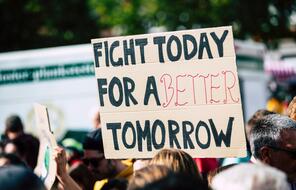
10 Questions for the Present: Parkland Student Activism
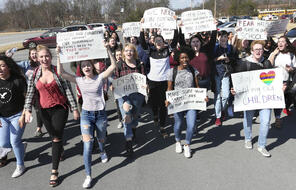
Standing Up to Hatred and Intolerance

#IfTheyGunnedMeDown
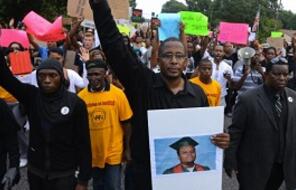
The Impact of Identity
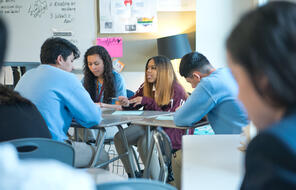
The Power of Images
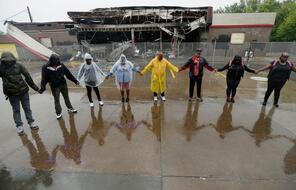
Preparing Students for Difficult Conversations
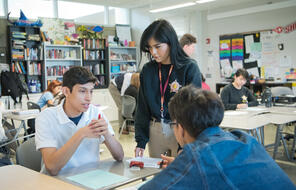
Social Media and Ferguson
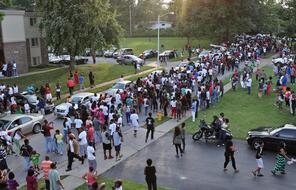
Verifying Breaking News
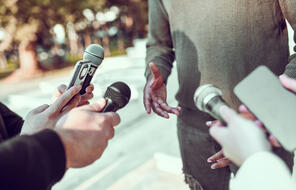
Facing Ferguson: News Literacy in a Digital Age

What Aspects of Our Identities Do We Show to Others?
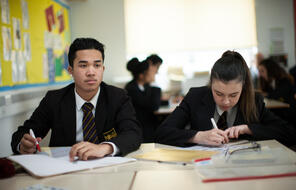
How Do Communities Define We & They?
